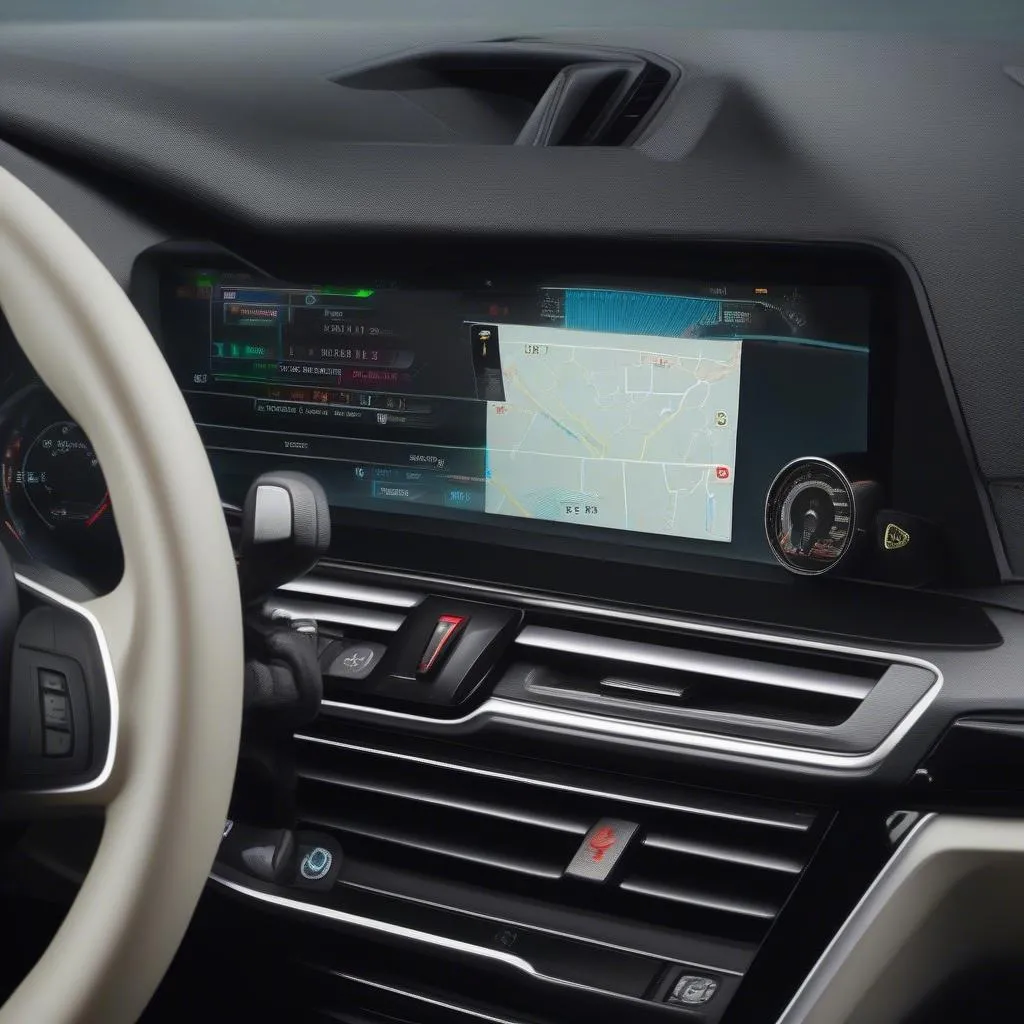You’re driving down the road, enjoying a beautiful day, when suddenly, a warning light on your dashboard illuminates. It’s the dreaded ABS light, and you’re not sure what to do. “What does this mean?” you ask yourself. “Is my car safe to drive?”
Don’t worry, you’re not alone. Many BMW drivers have encountered the ABS light at some point. In this article, we’ll explore what the BMW ABS light means, what causes it, and how to fix it.
What Does the BMW ABS Light Mean?
The ABS light, short for Anti-lock Braking System, is a critical warning signal that indicates a problem with your car’s braking system. It’s designed to prevent your wheels from locking up during sudden braking, giving you better control of your vehicle and potentially avoiding a collision. When the light illuminates, it means that the ABS system is not functioning properly and needs immediate attention.
Causes of the BMW ABS Light
The ABS light can be triggered by a variety of factors, including:
1. Faulty ABS Sensors:
These sensors are located on each wheel and measure the speed of rotation. If a sensor malfunctions, it sends inaccurate information to the ABS module, causing the light to illuminate. This is the most common reason for an ABS warning light.
2. Damaged ABS Wiring:
The wiring that connects the ABS sensors to the ABS module can be damaged due to wear and tear, rodent damage, or even a faulty electrical connection.
3. Malfunctioning ABS Module:
This module controls the entire ABS system and can malfunction due to age, overheating, or electrical faults.
4. Low Brake Fluid:
While it may seem unrelated, low brake fluid can also trigger the ABS light. The ABS system uses brake fluid to operate, and if the fluid level is too low, the system won’t function properly.
What to Do When the BMW ABS Light Comes On?
The first thing you should do is pull over to a safe location and check your brake fluid level. If it’s low, you need to top it off immediately.
Next, you should take your car to a qualified mechanic to diagnose the problem. They’ll use a diagnostic scan tool to read the fault codes stored in the ABS module. This will help them pinpoint the exact cause of the issue.
Tip: Always use genuine BMW brake fluid. Using aftermarket brake fluid can damage the ABS system and other components.
How to Fix the BMW ABS Light
Once the problem has been diagnosed, the mechanic can begin the repair process. This may involve:
- Replacing faulty ABS sensors
- Repairing or replacing damaged ABS wiring
- Replacing the ABS module
- Flushing and refilling the brake fluid system
Important: It’s essential to address the problem as soon as possible. Driving with a malfunctioning ABS system can be dangerous and may result in a serious accident.
Frequently Asked Questions about BMW ABS Light
Q: Is it safe to drive with the BMW ABS light on?
A: It’s generally not recommended to drive with the ABS light on. While your brakes may still work, you won’t have the added safety of the ABS system, making it harder to control your car during sudden braking.
Q: What if the ABS light comes on and then goes off?
A: This could be a sign of a temporary issue, but it’s best to get it checked out by a mechanic to ensure that there isn’t a more serious underlying problem.
Q: Can I reset the BMW ABS light myself?
A: In some cases, you can reset the ABS light by disconnecting the battery for a few minutes. However, this will only clear the error codes, not address the underlying issue.
Q: How much does it cost to fix a BMW ABS light?
A: The cost of fixing an ABS light can vary depending on the cause of the problem and the severity of the repair. For example, replacing a faulty ABS sensor can cost around $200-400 per wheel, while replacing the ABS module can cost several hundred dollars.
Q: Can I use a generic scan tool to diagnose my BMW ABS light?
A: While some generic scan tools can read basic fault codes, they may not be able to provide specific information about the ABS system. It’s recommended to use a dealer-level scan tool that can access all of the vehicle’s systems.
Q: What are some common symptoms of a faulty ABS system?
A: Apart from the warning light, other symptoms include:
- A grinding or clunking noise when braking
- The brake pedal feeling spongy or soft
- The vehicle pulling to one side when braking
Q: Can I drive with the BMW ABS light on for a short distance?
A: It’s generally not advisable to drive with the ABS light on for any distance. It’s best to address the problem as soon as possible to avoid potential safety risks.
Conclusion
The BMW ABS light is a critical safety feature that should never be ignored. If you encounter this light, take your vehicle to a trusted mechanic to get it diagnosed and repaired as soon as possible. By doing so, you can ensure the safety of yourself, your passengers, and other drivers on the road.
Do you have any questions about the BMW ABS light? Leave a comment below and our team of experts will be happy to assist you!
Need help getting started with a diagnostics tool for your BMW? Contact us on WhatsApp: +84767531508. We’re available 24/7 to help you get your car back on the road.



